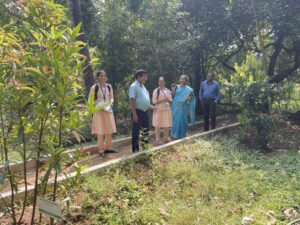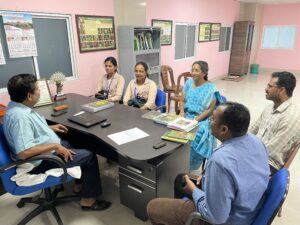In House
With the experience in producing seedlings and growing plants in gardens, we are venturing into research initiatives connected to nursery technology, agronomic practices, phenology, growth, productivity etc., for which our small team is getting geared up. In fact, expert like Mr. Sabik, who have strong research backing, lead the task.
Further Ahalia teams up with other Institutes and Organisations in collaborative research, as discussed on another page.
Internships
Green Ahalia offers excellent platform to post graduate students to pursue their internships at our campus where the researches they conduct is aligned with our goals and are mutually beneficial. The norms for this research is much relaxed though stringent monitoring and evaluations are followed to ensure quality output.


Conservation Garden
Ahalia flagship programme for conservation is the RET garden. In this garden several species falling under different RET categories and locally rare species are happily growing, ensuring the survival of the species in question. This garden can offer material for research and propagation for ex situ conservation. We have been liberally supported by agencies like NBRI, IFGTB, IIHR, FRLHT-TDU, KFRI, MBGIPS, JNTBGRI, MSSRF etc for pooling such species. The species here have been constantly monitored with special care and survival documented.
Projects
As part of the garden development programme, we have entered into MoU’s with Research institutes like NBRI, KFRI, IFGTB, Govt. Victoria College Palakkad etc for survival and maintenance of key species. Thus we are part of their conservation network. We have also been working with KFRI on developing a model for agroforestry using Sandalwood as key species and fruit trees. Once developed this will be a path breaking finding for popularising cultivation of this important, high-value species.
The other aspect of research in which we are engaged is in the field of developing ecosystem – specific packages of cultivation of prioritised commercially important species with support from NMPB and SMPB. This study also helps to recognise the many promising crops in the region.

